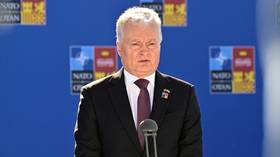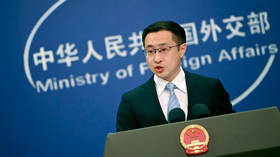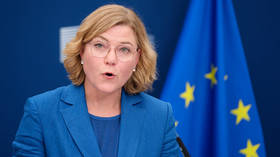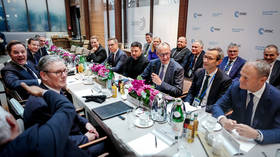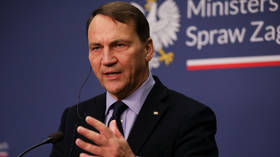Biden ‘pressed’ Baltic leaders over Russia – WSJ
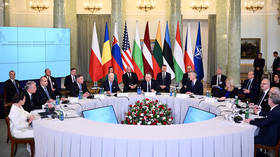
US President Joe Biden “pressed” the leaders of the Baltic nations over their calls for Russia to be defeated in Ukraine, an informed source told the Wall Street Journal.
Biden raised the issue with the presidents of Latvia, Lithuania and Estonia during his visit to Poland's capital Warsaw in late February, the outlet reported on Friday, citing a person briefed on the conversations.
The source did not reveal exactly what the US president said, but noted that Biden's words left “doubts among officials as to whether Washington believed that [Ukraine’s victory on the battlefield] was a realistic goal.”
In its article, the WSJ pointed to “concerns” among Kiev’s allies in Eastern Europe about “the thinking emerging in Western capitals that Ukraine should prepare at some stage for negotiations with the Kremlin.”
During his trip to Poland, Biden together with NATO Secretary General Jens Stoltenberg attended a summit of the so-called Bucharest Nine (B-9) countries, which comprise Bulgaria, the Czech Republic, Poland, Hungary, Romania, Slovakia as well as Latvia, Lithuania and Estonia.
The three Baltic nations, which are all former Soviet republics and now EU and NATO members, have been among the harshest critics of Russia since the outbreak of the conflict in Ukraine, insisting on more weapons deliveries to Kiev and harsher sanctions against Moscow.
Last month, Lithuanian President Gitanas Nauseda called on Ukraine’s Western backers to cross all “red lines” on arms supplies to the government of Vladimir Zelensky, as they were “in our minds and don’t really exist in reality.” He said his “message” to the US and its allies was: “Not [to] waste the time. Be decisive, be united and take decisions as quickly as possible.”
In late January, Kremlin Press Secretary Dmitry Peskov said Moscow had “noticed the increasingly aggressive attitude of the representatives of the Baltic nations and Poland” towards the conflict in Ukraine.
“They are obviously ready to do everything to provoke further growth in confrontation, perhaps with little thought of the consequences,” Peskov claimed, while expressing regret that major European countries have been failing to perform their “balancing role” and calm down those with “extremist tendencies.”
